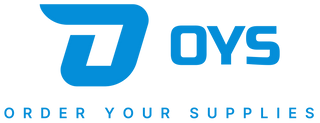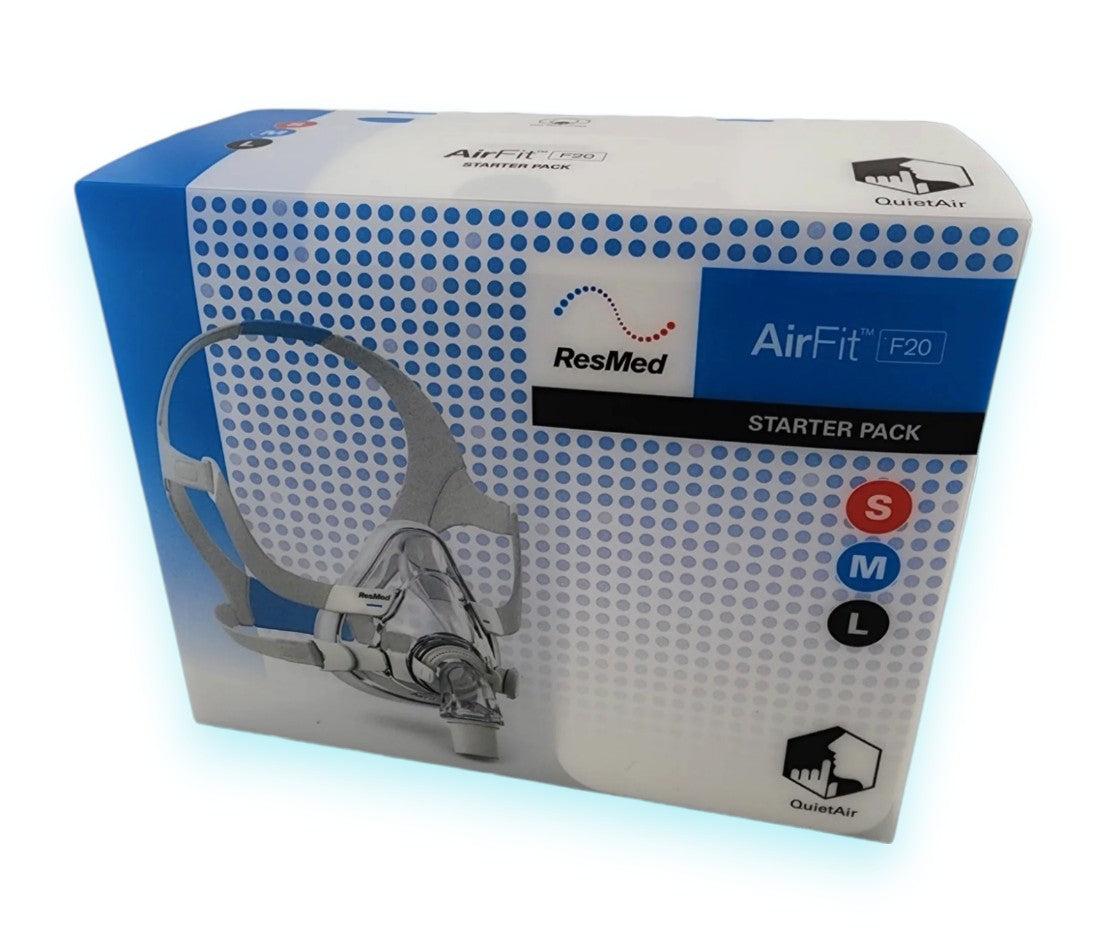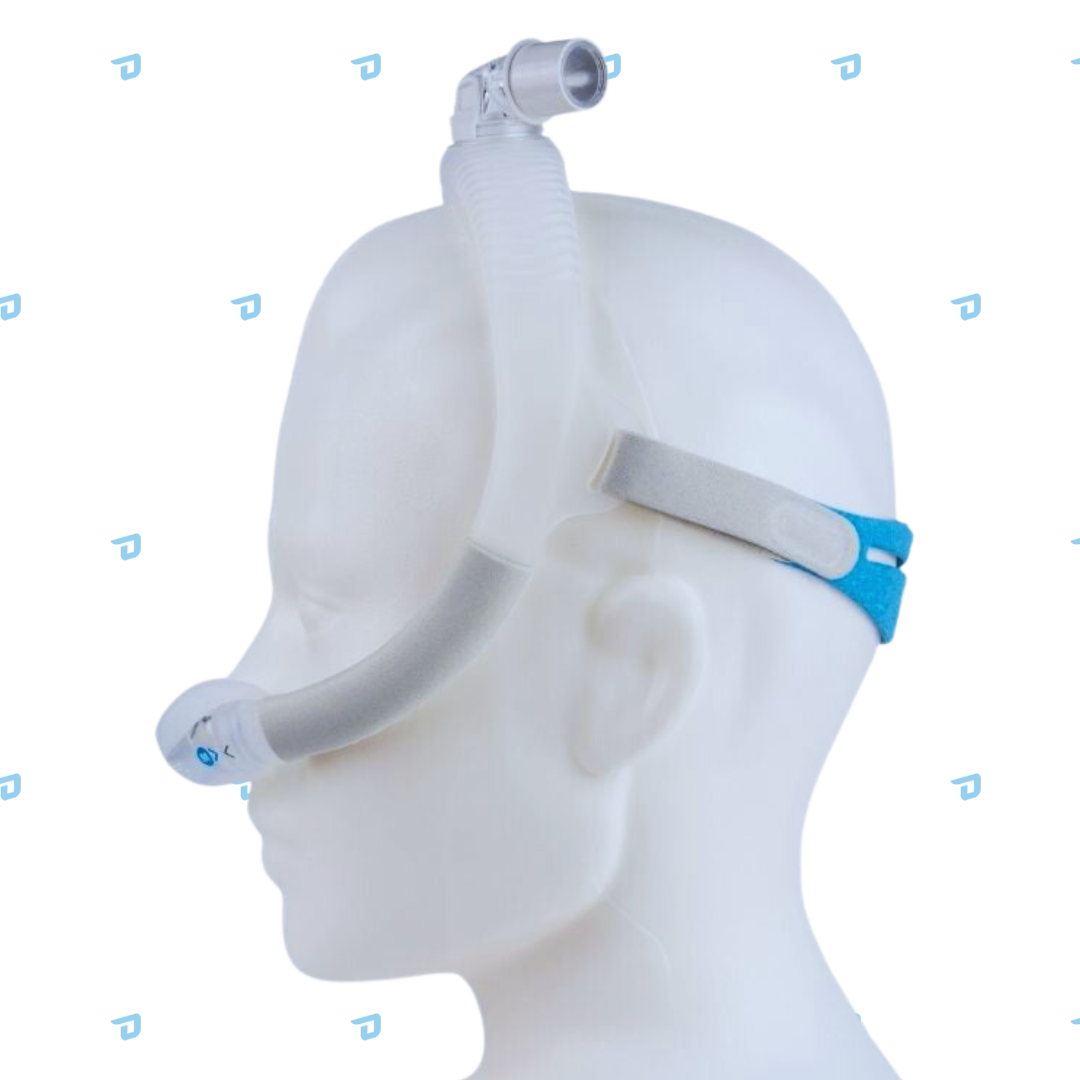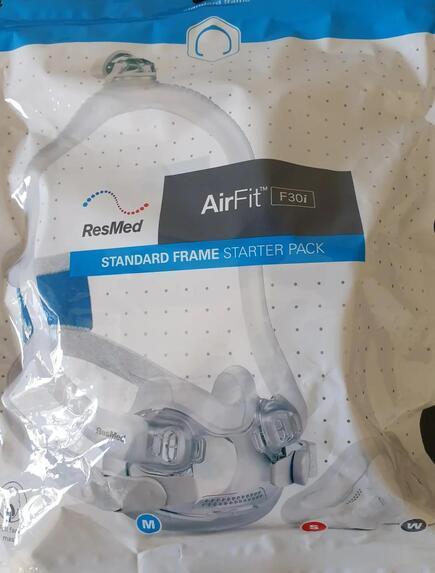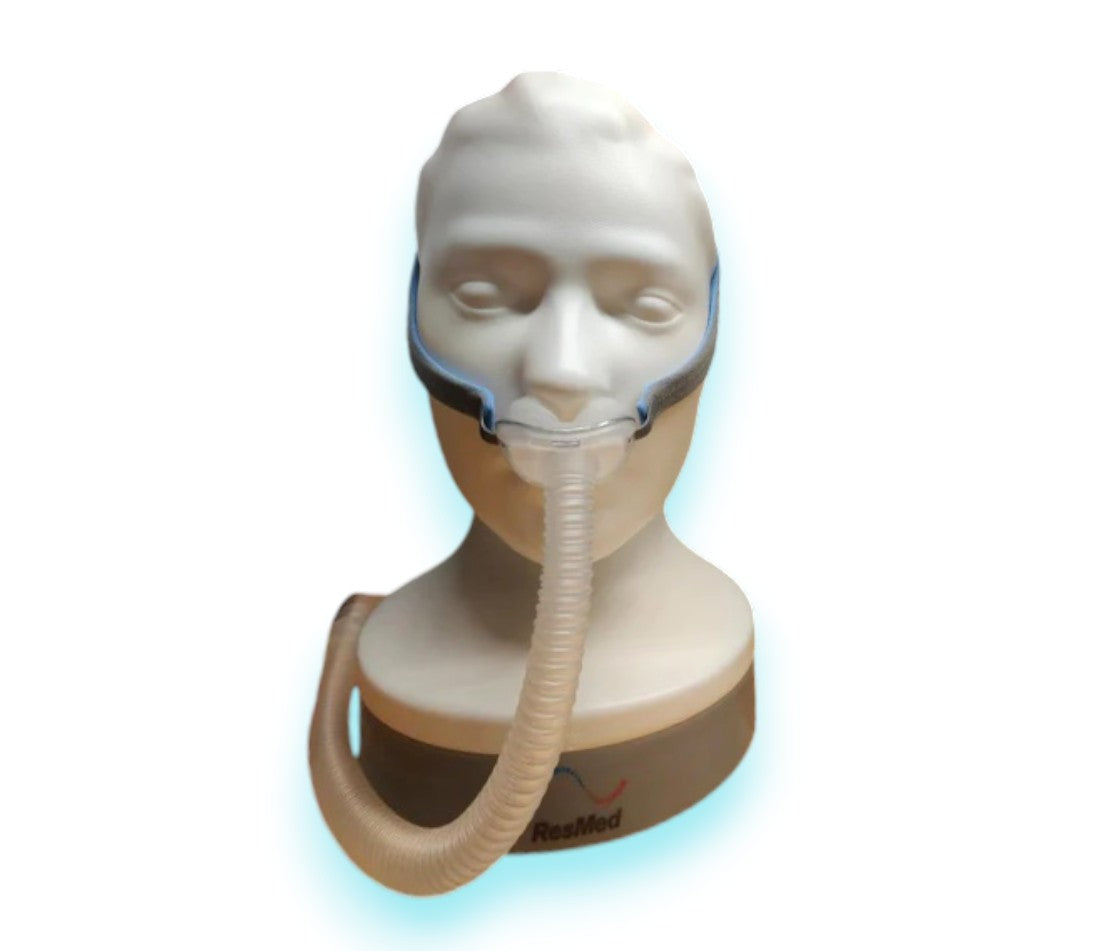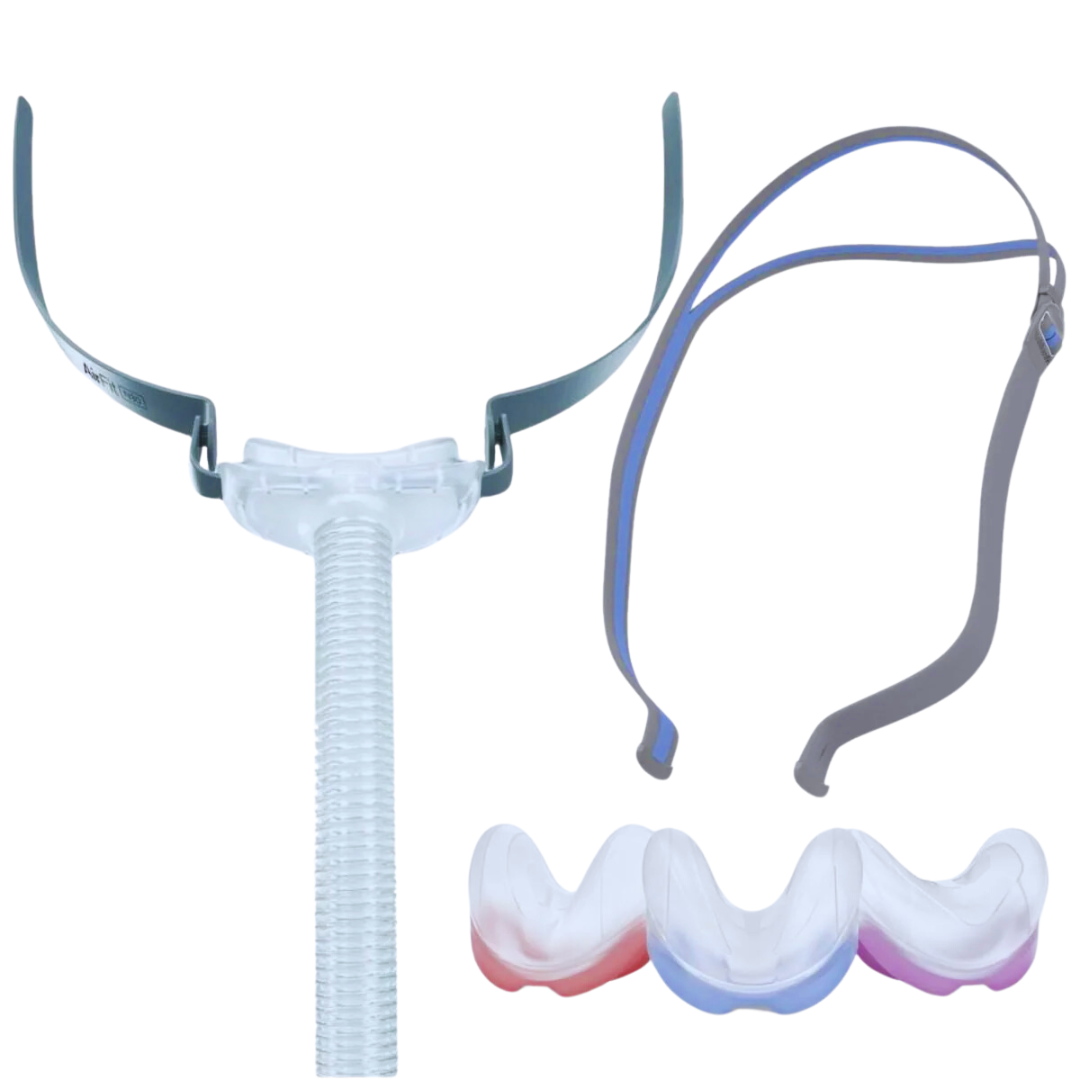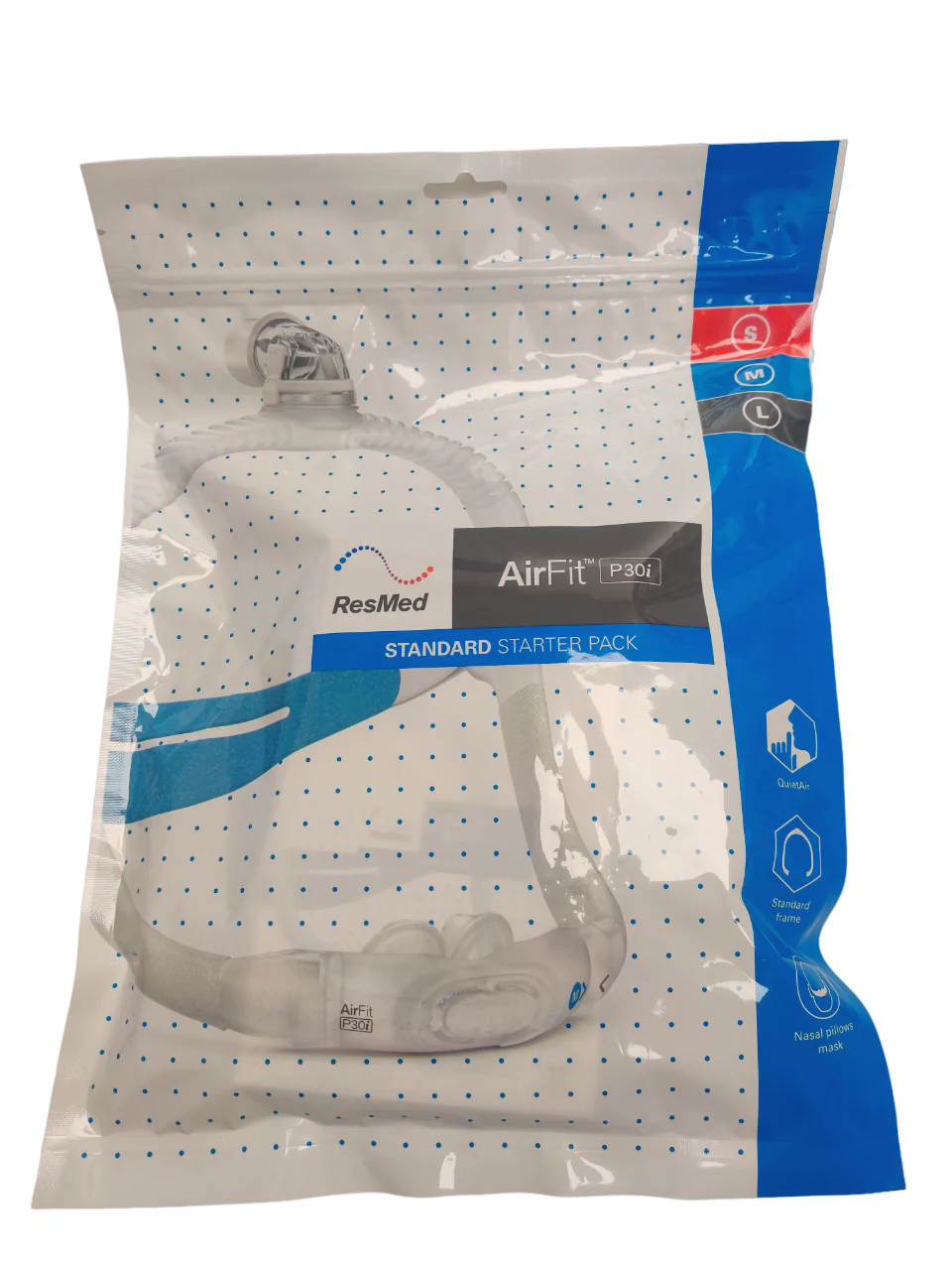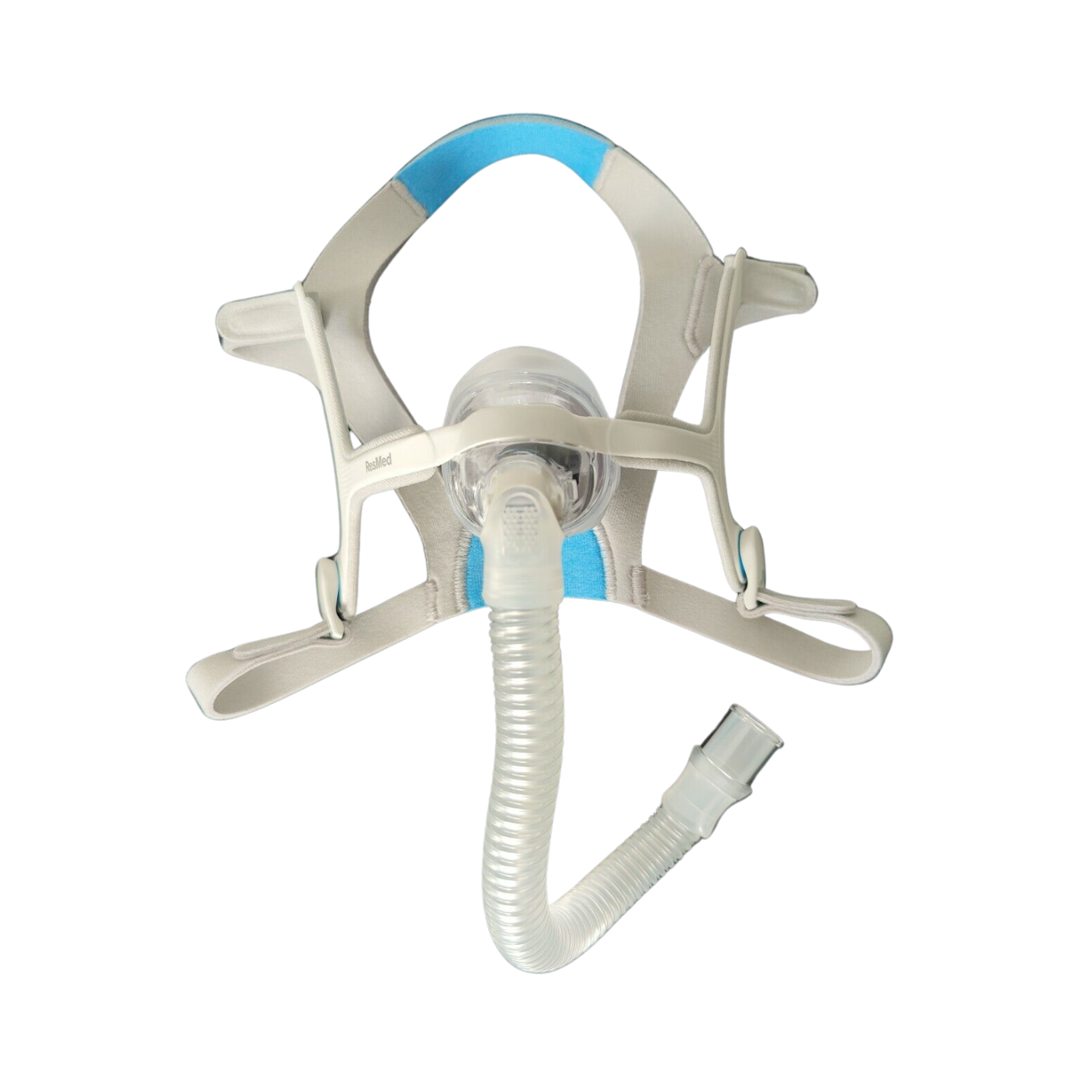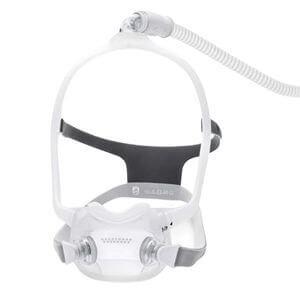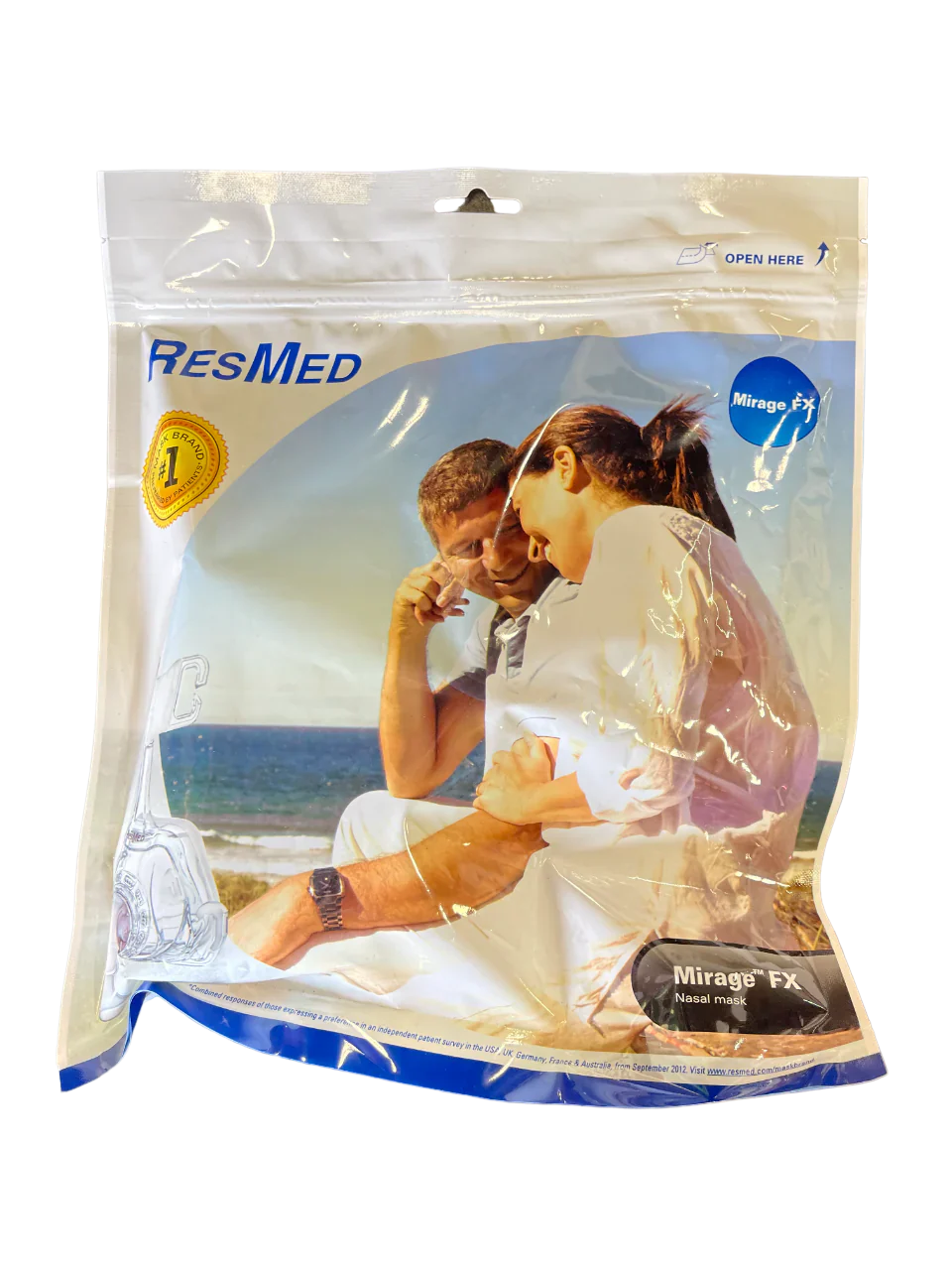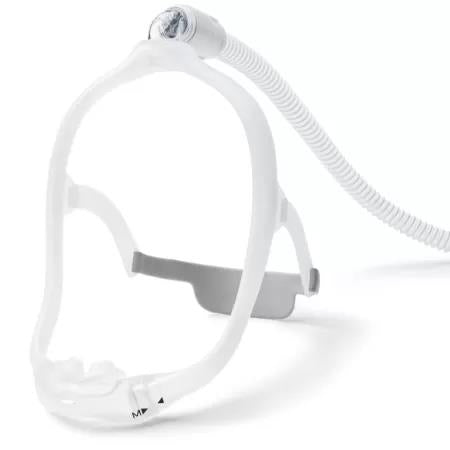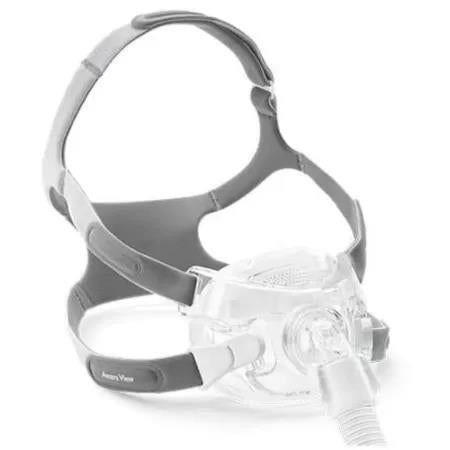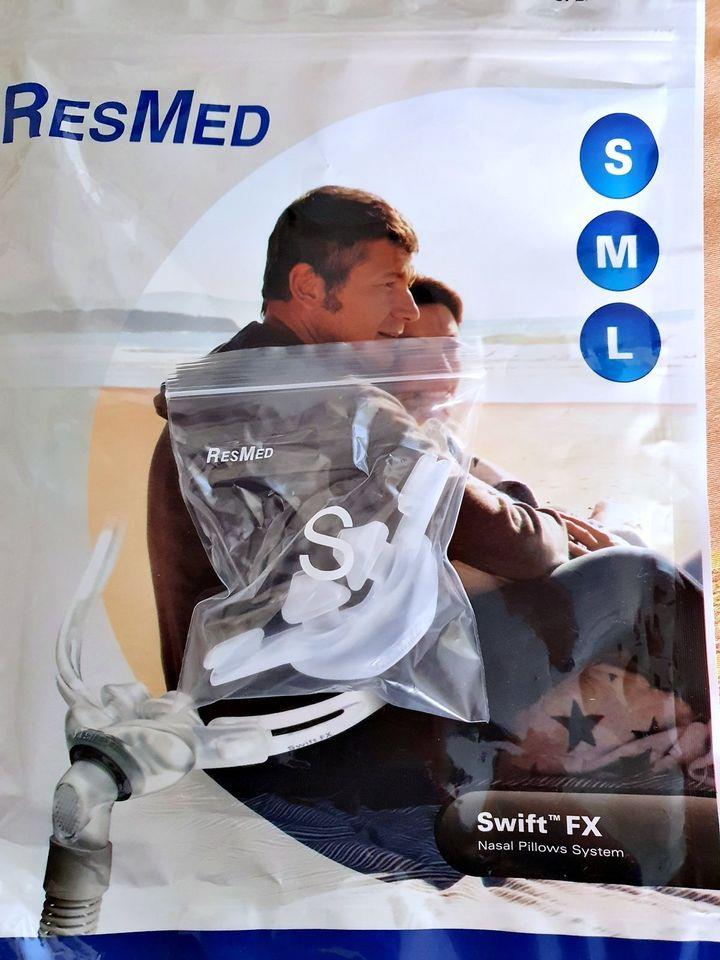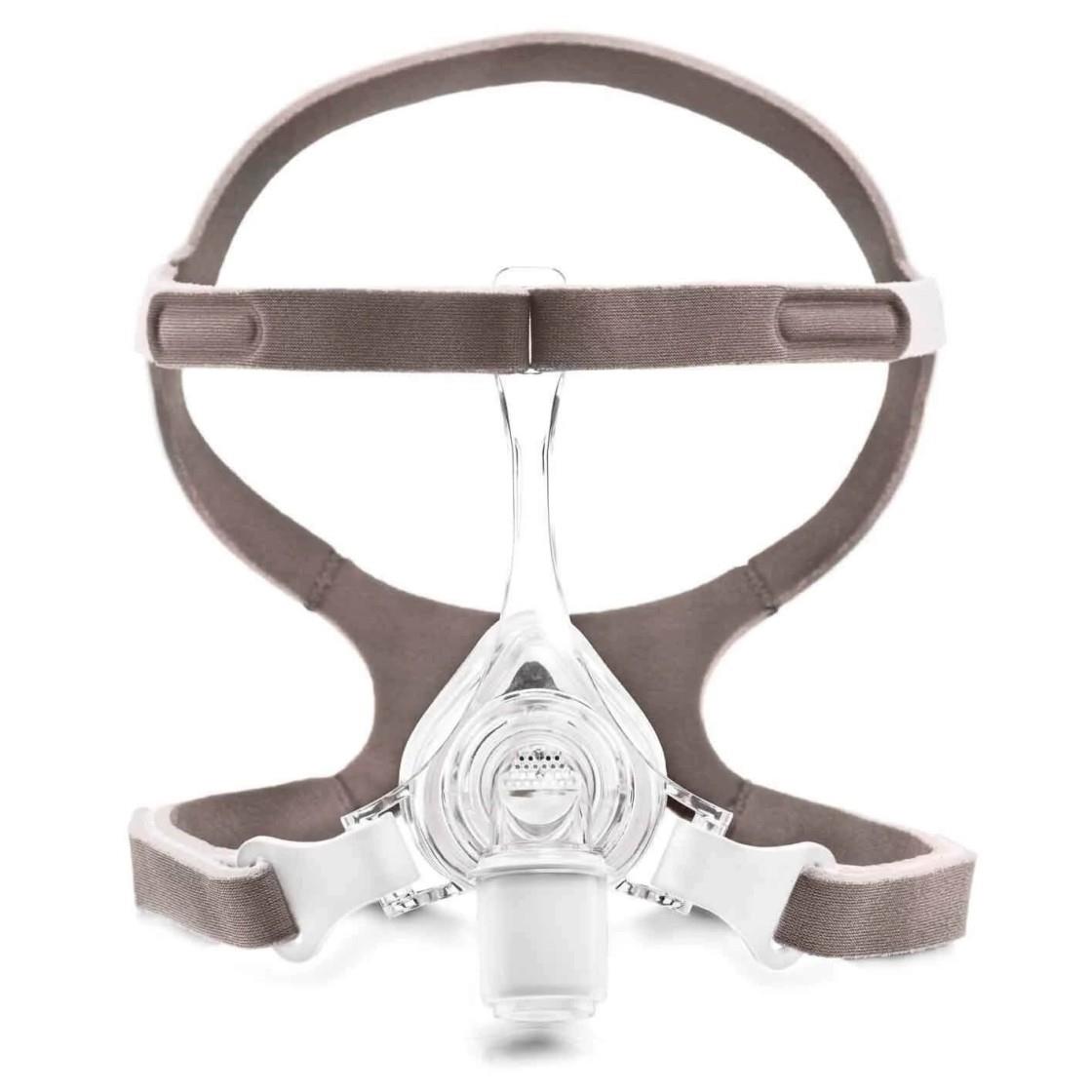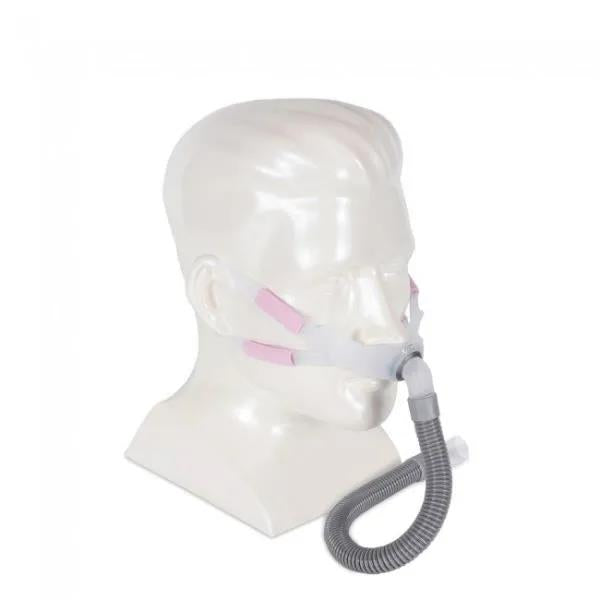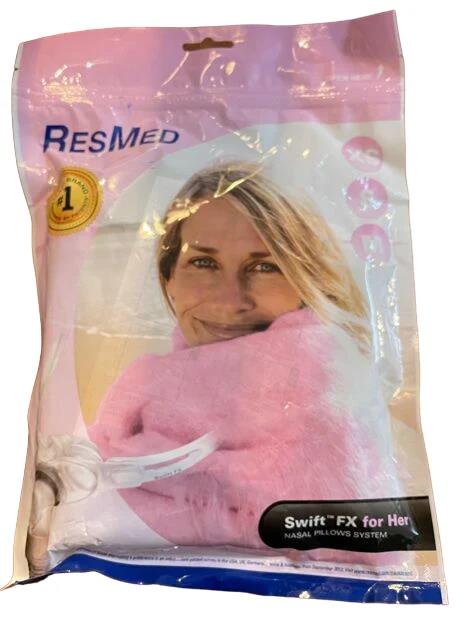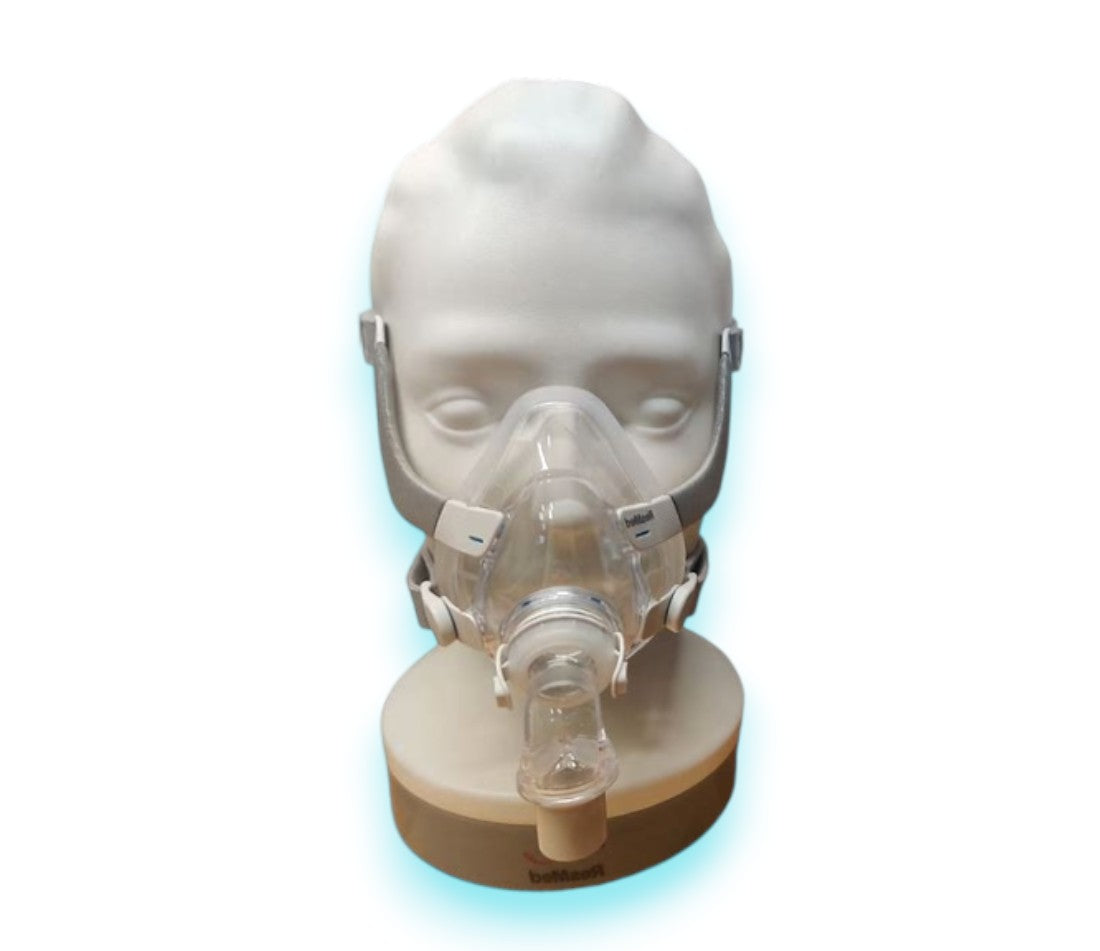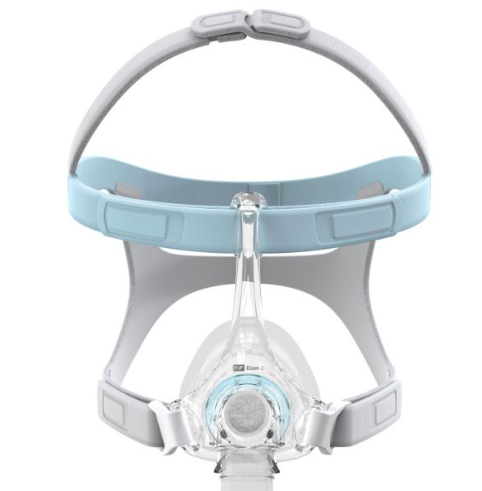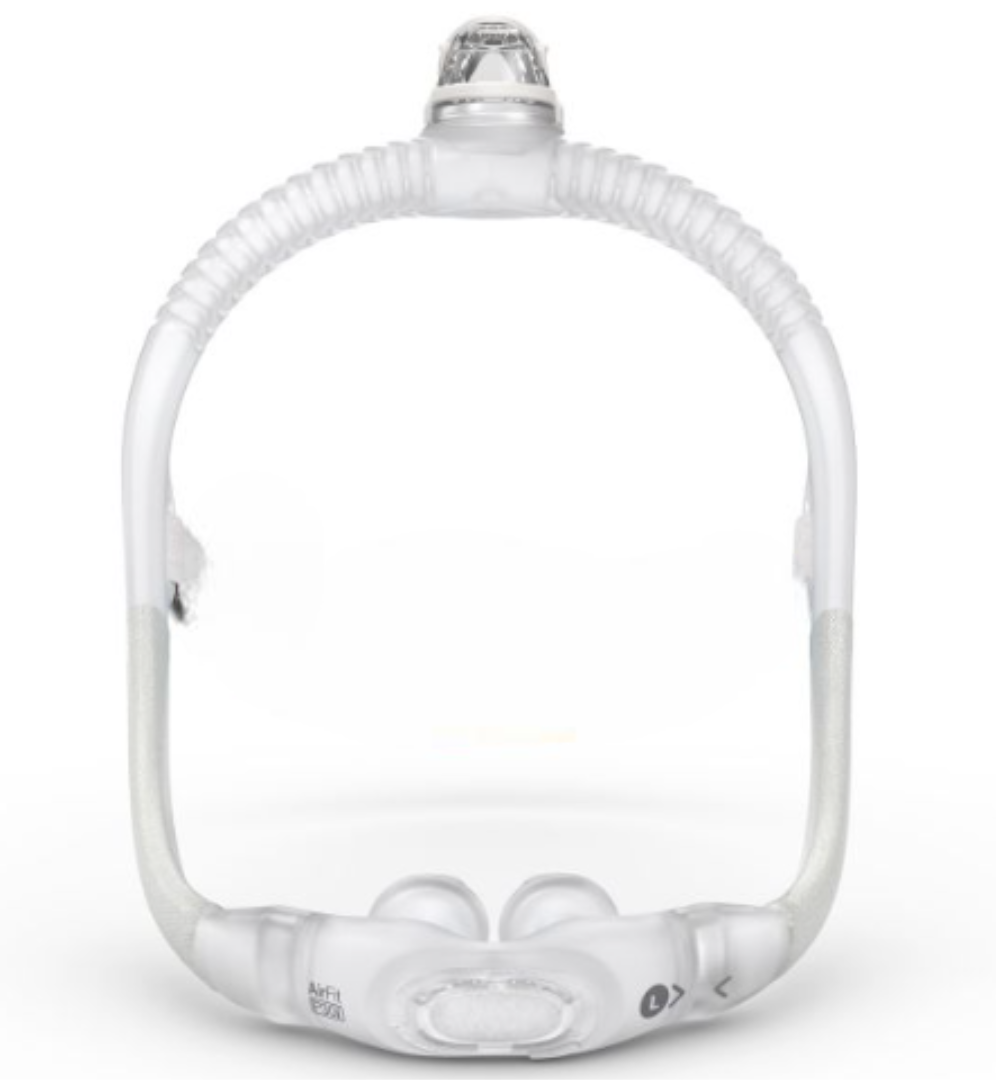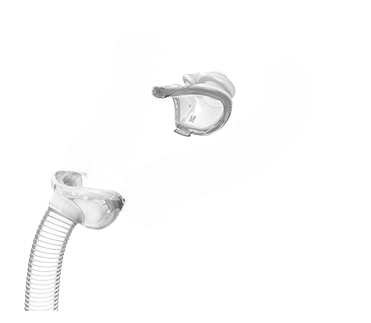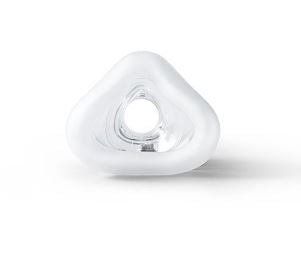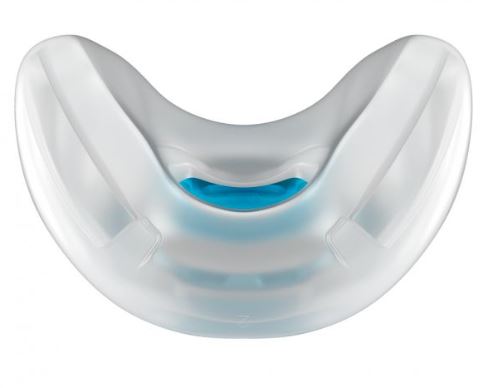Best CPAP Masks for Nose Breathers
CPAP Masks for Nose Breathers
Explore our extensive collection of CPAP Masks for Nose Breathers, meticulously crafted to ensure optimal comfort and efficiency during sleep therapy. Whether you're new to CPAP or a seasoned user, our range of CPAP Masks for Nose Breathers is designed to meet your unique needs. Choose from streamlined nasal pillow masks to robust full-face options, all tailored specifically for nose breathers.
... Read MoreFind the Best CPAP Masks for Nose Breathers - Shop Now!
CPAP Masks for nose breathers are a popular option for individuals suffering from sleep apnea. Continuous Positive Airway Pressure (CPAP) therapy is a common treatment for this condition, and CPAP masks for nose breathers are designed to deliver pressurized air through the nasal passages to keep the airway open during sleep. These masks are typically worn over the nose and secured with straps that wrap around the head.
One of the best CPAP masks for nose breathers is the nasal pillow mask and nasal masks. Some users don't like the feeling of a full-face mask covering their mouth, so they prefer the nasal pillow style.
These masks come in various cushion sizes and styles to accommodate different face shapes and preferences. Many manufacturers of these masks have created gel cushions and magnetic straps to ensure a secure and comfortable fit, while others have adjustable headgear to ensure a secure and stable fit throughout the night. For individuals new to CPAP therapy, finding the right mask can make a significant difference in their comfort and adherence to treatment.
Some of the top brands vary in design, but they all rest on top of the nostrils rather than covering the entire face. With advancements in technology and design, CPAP masks for nose breathers continue to improve in comfort and effectiveness, making them a vital tool in managing sleep apnea and improving overall sleep quality.
Key Features of CPAP Mask For Nose Breathers
1. Minimal Facial Contact
CPAP masks for nose breathers have fewer contact points on the face, and their silicone materials provide a soft, comfortable fit. This reduces the risk of skin irritation and red marks, enhancing overall comfort, even for users with facial hair.
2. Lightweight and Compact Design
These masks are designed to be lightweight and have a minimalistic profile. This reduces the bulk on the face, making them ideal for users who prefer a less obtrusive mask, especially those prone to claustrophobia.
3. Ease of Use
Masks for nose breathers are often simple to put on and adjust. Great for first-time CPAP users due to their ease of use and comfortable fit.
4. Nasal Pillows or Nasal Cradle Cushions
These masks rest at the entrance of the nostrils or under the nose, providing direct airflow without covering the bridge of the nose. They offer minimal facial contact and are less intrusive, making them comfortable for many users.
5. Quiet Operation
Many nasal masks are designed with features to minimize noise, ideal for users who are sensitive to noise and seek a peaceful sleep environment.
6. Stable Fit for Active Sleepers
CPAP Masks for nose breathers often come with secure headgear and side straps, providing a stable fit for side sleepers and those who move frequently during sleep, which can also be found in some full-face CPAP masks as well.
7. Clear Field of Vision
Nasal masks do not obstruct the eyes or the bridge of the nose, allowing users to wear glasses and engage in activities like reading or watching TV before bed; these masks seal well for optimal therapy.
8. Full-Face Design
Full-face masks cover both the nose and mouth, providing a secure seal and delivering pressurized air directly into the mouth. These masks are popular for users needing higher pressure settings.
Comparison Between CPAP Masks for Nose Breathers and CPAP Masks for Mouth Breathers
| Feature | Nose Breathers | Mouth Breathers |
|---|---|---|
| Design | Covers only the nose or fits into the nostrils (nasal pillows) | Covers both the nose and mouth |
| Breathing Style | Suitable for those who can breathe solely through their nose | Ideal for those who breathe through their mouth or have nasal congestion |
| Pressure Settings | Generally suitable for low to moderate pressure settings. | Suitable for all pressure settings, including high-pressure |
| Comfort | Minimal facial contact, lightweight, less bulky | Maybe bulkier but often includes cushioning for comfort |
| Seal | Seals around the nose or nostrils may cause discomfort at the nasal bridge | Seals around the nose and mouth, often include features to prevent leaks and accommodate jaw movement |
| Sleeping Position | Suitable for side and back sleepers, not ideal for stomach sleepers | Suitable for all sleeping positions, including stomach sleepers |
| Visibility | Minimal obstruction, good for reading or watching TV before sleep. | May obstruct vision, but some models have a low-profile design |
| Noise Level | Generally quieter due to less surface area | Can be noisier, but some models include noise-reducing technology |
| Examples | ResMed AirFit N30, Nasal Pillow Masks | ResMed AirFit F20, ResMed AirTouch F20, Philips Respironics DreamWear Full Face |
| Special Features | Often includes QuietAir technology to reduce noise | Features like Infinity Seal Technology to prevent air leaks, auto-adjusting cushions |
Different Types of CPAP Masks for Nose Breathers
1. Nasal Pillow Masks
Nasal pillow masks are designed with minimal facial contact and feature small cushions that seal just inside the nostrils, providing direct airflow and reducing the chances of leaks caused by movements and position changes.
Benefits: Nasal pillow masks are less intrusive and offer a clear field of vision, making them ideal for users who feel claustrophobic in larger masks like the full face CPAP masks. They are also good for users who wear glasses or like to read or watch TV before bed.
Examples: ResMed AirFit P10, Philips Respironics DreamWear Nasal Pillow, and n30i nasal CPAP mask.
2. Nasal Masks
This triangular mask covers the nose only, from the bridge of the nose to the upper lip. The mask is usually held in place with a strap that goes around the head, ensuring a secure mask fit for effective sleep apnea therapy. Nasal masks are the most commonly used type of mask.
Benefits: Nasal masks are less claustrophobic than full-face masks and can provide a good seal for users who breathe through their noses. They are also compatible with wearing glasses or reading before bed, ensuring you get the best CPAP experience without compromising your nighttime routine. They allow for a more natural sleeping position.
Examples: ResMed AirFit N20 Nasal CPAP Mask, Philips Respironics Wisp Nasal Mask, and other nasal pillow CPAP masks.
3. Nasal Cradle Masks
Nasal cradle masks combine features of nasal pillows and nasal masks, providing airflow directly into the nostrils. They have a top-of-head tube design that allows for various sleeping positions.
Benefits: These masks provide a comfortable and secure seal. They allow for freedom of movement during sleep.
Examples: ResMed AirFit N30
CPAP Masks for Nose Breathers are Ideal for Whom?
1. Individuals Who Breathe Primarily Through Their Nose
These masks are designed to deliver pressurized air directly to the nasal passages, making them Ideal for those who naturally breathe through their nose during sleep, ensuring effective CPAP therapy.
2. Users Seeking Minimal Facial Contact
CPAP masks for nose breathers have fewer contact points on the face which leads to reduced skin irritation and red marks, enhancing overall comfort, unlike full face CPAP masks which cover a larger area.
3. Claustrophobic Users
The minimalist design avoids covering large portions of the face, making it perfect for users who feel claustrophobic with larger masks, offering a less intrusive experience. This mask uses two soft pillows, sitting at the top of your nose, to provide a comfortable sleep solution.
4. Side Sleepers and Active Sleepers
The lightweight, compact design stays securely in place even with movement, making them suitable for side sleepers and those who move frequently during sleep, providing a stable fit without being bulky.
5. Users Who Wear Glasses or Need a Clear Field of Vision
These do not obstruct the eyes or the bridge of your nose, making them suitable for people with facial hair. Allows users to wear glasses comfortably and engage in activities like reading or watching TV before bed.
6. Users Seeking Quiet Operation
Many of these masks are designed with features to minimize noise, making them ideal for users who are sensitive to noise and seek a peaceful sleep environment.
7. Users Needing Lower to Moderate Pressure Settings
These masks are generally suitable for lower to moderate CPAP pressure settings ensuring effective therapy without the discomfort that might come with higher air pressure settings.
8. First-Time CPAP Users
The simple, easy-to-use design makes nasal masks a good introductory option. Great for new CPAP users due to their ease of use and comfortable fit, helping them adapt to therapy more easily.
How to Find the Right Mask for You?
1. Understand Your Breathing Style
If you primarily breathe through your nose, nasal masks or nasal pillow masks are ideal. These masks deliver air directly to the nasal passages, ensuring effective therapy.
2. Consider Your Sleep Position
- Side Sleepers: Nasal pillow masks or nasal masks are often recommended for side sleepers as they provide a secure fit and are less likely to shift during sleep.
- Active Sleepers: If you move frequently during sleep, look for masks with secure headgear and minimal contact points to maintain a stable fit.
3. Evaluate Comfort and Fit
Nasal pillow masks offer minimal contact, reducing the risk of skin irritation and red marks. Ensure the mask has adjustable straps to customize the fit and enhance comfort. Also Look for masks with soft, comfortable cushions that provide a good seal without causing discomfort.
4. Assess Your Nasal Airway
If you have frequent nasal congestion, a nasal mask might be more suitable than nasal pillows, as it covers the entire nose and can accommodate slight blockages, providing relief at the base of your nose.
5. Check for Quiet Operation
Some masks are designed to minimize noise, which can be beneficial if you are sensitive to sound during sleep. Fisher masks are known for their quiet performance.
6. Ease of Use and Maintenance
CPAP masks for nose breathers are generally easier to put on and adjust, making them a good option for first-time CPAP users. Consider how easy the mask is to clean and maintain. Nasal pillow masks typically have fewer parts and are easier to clean.
7. Consult with a Specialist
Consult your doctor or a sleep medicine specialist to get personalized recommendations based on your specific needs and preferences.
8. Try Different Masks
Experiment with different masks to find the one that works best for you. Many suppliers offer trial periods or return policies to help you find the perfect fit, including memory foam options that may enhance comfort.
How do you sleep with a CPAP mask for Nose Breathers?
1. Choosing the Right Mask
Select a CPAP mask that creates a seal around your nose and is comfortable for you. Work with your healthcare provider to find the best fit for your needs and sleep position.
2. Adjusting to the Mask
Wear the mask for short periods while you're awake to get used to the sensation before trying to sleep with it. This can help you become more comfortable with the mask.
3. Finding the Right Sleep Position
Your sleep position can impact the effectiveness and comfort of your CPAP therapy. Side sleepers may benefit from nasal pillow masks, while back sleepers have a wider choice of masks. Stomach sleepers may find masks with top-of-the-head hose connections more comfortable.
4. Ensuring a Good Seal
Adjust the straps of the mask to ensure a proper seal without causing discomfort. This is essential to prevent air leaks that can disrupt your sleep. Nasal cradle masks can sit at the base of your nose, reducing the chance of air leaks.
5. Dealing with Common Issues
If you experience nasal congestion, adjust your CPAP machine's humidifier settings. If the mask feels bulky or constrictive, consider trying different mask styles or sizes.
6. Regular Maintenance
Keep your mask and CPAP machine clean to avoid issues like nasal congestion and skin irritation. Follow the manufacturer's recommendations for replacing parts.
7. Consulting with Professionals
Always follow the advice of your doctor or sleep specialist. They can help troubleshoot any issues and make necessary adjustments to your therapy.
Why Choose Us?
Wide Variety of Supplies
We carry a vast range of masks and other essential CPAP supplies, including different mask styles, ensuring you find everything you need in one convenient place. You can also find the best nasal cushion for your therapy needs.
Unbeatable Expertise
Our knowledgeable customer support team is well-versed in products and can provide personalized recommendations based on your specific needs and preferences. We also offer an extensive range of masks available in our online store.
Convenient Subscription Options
Simplify your life with our convenient subscription options, and easily choose a mask and accessories based on your sleep needs. Choose the CPAP supplies you need and set up recurring deliveries to ensure you never run out of essentials, including the best CPAP mask based on your sleep position. You can also select masks compatible with your CPAP machine.
Customer Satisfaction Guaranteed
We are committed to your satisfaction with our range of CPAP equipment. If you are not happy with your purchase, we offer a hassle-free return policy, ensuring you can continue finding a mask that suits your needs.
FAQs
Our committed team is available to support you through every step of your treatment journey.


